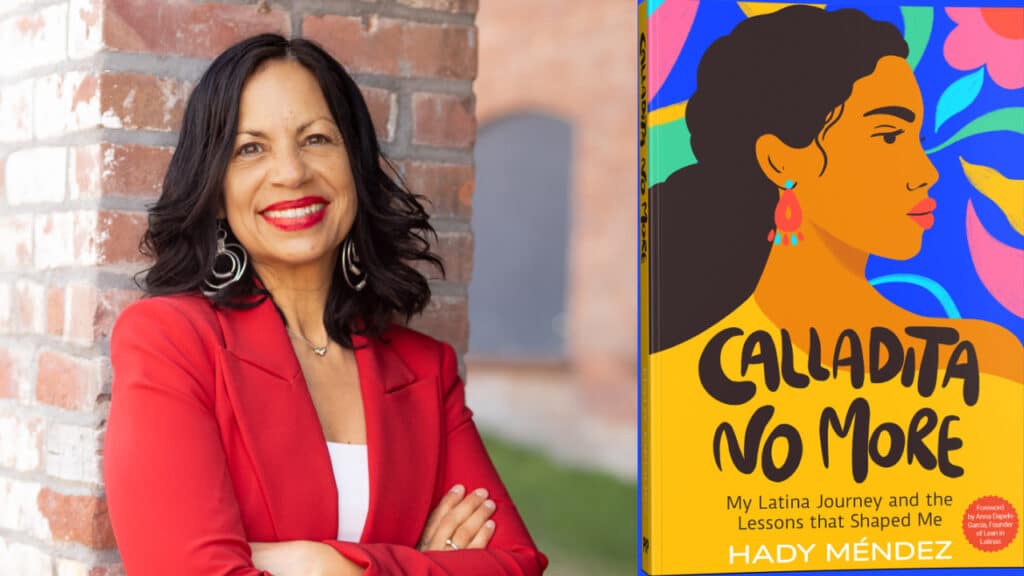
‘Set Aside Judgments Against Yourself When Asking for Money’—Tips for Confident Salary Negotiations
We’ve all heard the staggering statistic: Latinas earn just 55% of what non-Latino white men are paid. It means that what takes a white man 12 months to earn takes us nearly two years.
So, how do we close this gap? Where do we even begin?
Let’s break it down! Here’s a roadmap for your next money discussion—one that empowers you to ask for what you deserve and negotiate with confidence.
These tips, straight from my book Unbeatable Latinas, will guide you on your journey to taking back your financial power.

Step 1: Start with your mindset
If as a child you were told that you asked for too much (How demanding! How greedy!), it’s possible that today you hold yourself back before asking for what you want.
I had to unlearn the ingrained belief that by working very hard and being perfect, the rewards would come without me having to ask for them.
For years I focused on just working very hard. I rarely stepped out of my comfort zone to ask for what I wanted. As a result, I went seven years without a salary increase. Later on, as a business owner, I accepted very low prices from my clients without sitting down to negotiate with them.
Words you heard in your past may have become the inner voice that now holds you back when asking. It’s possible that the same emotions you felt back then, such as guilt or shame, continue to show up when you make your ask. And this inner interference can make you sound insecure when making your ask.
So, watch out for the words and thoughts you hold in your mind and pivot them into self-empowering ones.
Step 2: Understand where you are and the alternatives ahead
Write down your strengths and success stories
When it comes to asking and negotiating, it’s important to remember your strengths and what makes you a valuable professional.
Write down every success story you achieved inside and outside your organization. Take notes of projects completed ahead of schedule, results that exceeded expectations, connections you established that ended in strategic alliances, courses and certifications you completed, philanthropic activities you are involved in, and boards where you are serving.
Take notes of all this now so that you have the information at hand when you need it most.
Those of us who are multicultural and navigate two worlds, as well as two value systems, need to remind ourselves more often of our unique strengths and abilities.
You are a natural leader. If you don’t believe me, consider that there is no way you could have gotten this far without being a leader and pioneer, making your way into the unknown. We are resilient, courageous, daring, loyal dreamers, hard workers, and natural negotiators. Those skills are the exact leadership qualities that will transform this country and the world. Let’s give them value.
Work on your areas of opportunity
Being honest with our weaknesses, or as I prefer to call them, our “areas of opportunity,” is not always easy. It is OK to feel uncomfortable with our weaknesses. But if we push them aside and avoid taking an honest look into our weak points, we risk being blocked by them. That is why it’s so important to be aware of your areas of opportunity and to have a proactive plan to keep working on those areas.
Logic would indicate that if we ask for feedback from those around us, we will better see what others see. It’s not that easy. There are many studies, including one that Textio run with 25,000 participants, that indicate that women, particularly women of color, do not receive clear and complete feedback but rather superficial information that does not help us. We are left wondering what exactly we need to change or improve.
That’s why we need to make an additional effort with our bosses, colleagues, and clients and specifically ask for tangible examples. Sometimes, we might have to assure them that we won’t take it personally, and explaining their feedback is key to our professional growth.
Next time you ask for what you want or need, keep at hand your strengths as well as your progress in your areas of opportunity. Work on your improvement plan even before you are asked to do so, and in the process, request continuous feedback with specific and clear examples.
Step 3: Establish your non-negotiables
“Help me understand all this about non-negotiables,” I asked my dear friend Dr. Gail Taylor after a panel in which she had discussed this issue. “I find that I establish my non-negotiables and then end up changing them,” I confessed. During several negotiations I ended up giving in, usually working more and earning less.
“If you end up changing them, then they are not non-negotiables, but rather boundaries that you are flexing according to the circumstances,” she explained. “A non-negotiable is exactly that, it is not negotiated. My non-negotiables do not change. Because if they do, I know that I will negatively impact my life or that of my loved ones.”
Gail asked me to imagine my non-negotiables as a box with rigid edges.
“Be careful with what you place in that box, because those walls are rigid. If you try to bend them, which is equivalent to giving in on your non-negotiables, you can break them, and with that, you can impact your self-confidence by breaking an agreement you had with yourself.”
On the other hand, the walls of the box where we place our boundaries are soft. This gives us the flexibility to modify those boundaries according to the circumstances. Now, flexing them constantly can eventually break them too, so it’s important we make an effort to keep those soft boundaries in place as well.
When thinking about money, define the non-negotiable or minimum you would be happy with, as well as your maximum soft boundary. As you ask, go for the maximum boundary (even if it scares you a little) and keep the non-negotiable minimum to yourself, knowing you cannot go lower than that.
Step 4: Make your ask!
When great negotiators present their case and ask for money, they mention their desired amount and then remain silent. They don’t say another word. In that silence, they create space, even if it’s uncomfortable, for the other party to react.
This space is sacred, and if you learn to use it, it gives you the power and shows that you have confidence in yourself and know what you want. After going seven years without a salary increase, the day I sat down to negotiate, I did the opposite of remaining silent.
I presented my case and mentioned my desired amount, but I continued offering justifications and explanations that started to sound like a ramble.
I ended up entangling in my own words, stumbling and nervous. My voice of self-judgment came back in full force, and it goes without saying that I didn’t receive the money I was asking for.
Now you know:
- Present your case, make your ask, and… silence.
- Let the other party accept your offer or present you with a counteroffer. If they offer you an amount that doesn’t feel right, you can ask for some time to think about it.
- Don’t make a rushed decision under pressure, and don’t give in if you don’t feel sure.
Let’s set aside any judgments we hold against ourselves when it comes to asking for support, resources, or money. Money and other material objects are neither good nor bad. They simply are. We are the ones who give them meaning.
The problem arises when we transform money and other material objects into a crutch for our lack of self-esteem.
Remember, the world needs more power and money in the hands of conscious human beings whose mission is to leave the world better than they found it.
Valeria Aloe is an author, speaker, and expert on the Latino mindset and market. Her writing and keynotes have empowered thousands of Latinas and other multicultural women who, like her, are the first in their families to navigate professional spaces. Originally from Argentina, Valeria moved to the U.S. in 2002 to earn her MBA from Dartmouth’s Tuck School of Business. With 20 years of experience in brand management and marketing strategy at global companies such as Procter & Gamble, Citibank, TIAA, and PricewaterhouseCoopers, she transitioned to a career as an author and speaker. She published Uncolonized Latinas in 2022, and her latest book, Unbeatable Latinas, is set to launch this October.




